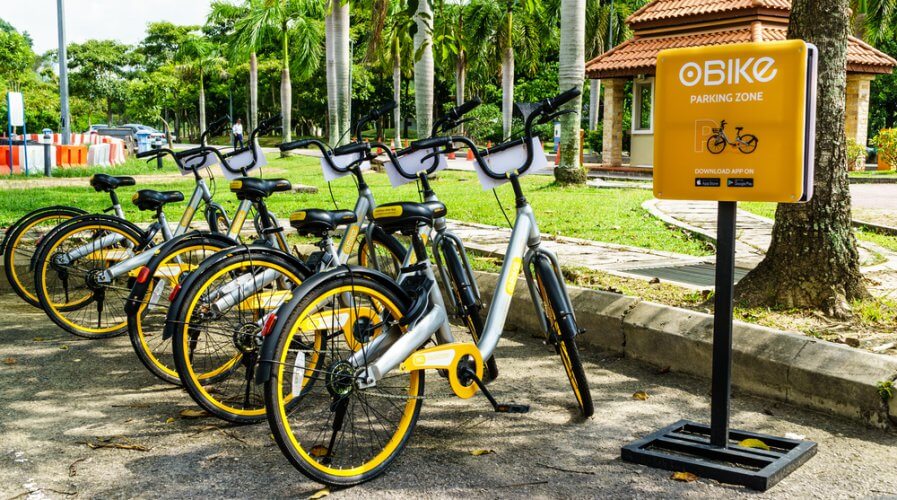
Singapore is requiring bike sharing operators to adopt geofencing to prevent haphazard parking by users. Source: ShutterStock
Singapore clamps down on hazardous bike parking
BIKE sharing is a convenient way to get around the city, but users’ haphazard parking skills often become a nuisance.
According to the Land Transport Authority (LTA) in Singapore, dockless bike-sharing service providers have until the end of the year to adopt “geofencing”. This was done in a bid to rectify the issues of illegally parked and misplaced bicycles.
Geofencing is a system whereby users can only park in a designated area by scanning a “parking QR code”. The system uses Global Positioning System (GPS) to track the location of bikes; while radio frequency identification technology (RFID) is used to identify individual bikes.
Currently, there are three bike-sharing operators in Singapore – Chinese startups Mobike and Ofo, as well as local provider oBike. The Singapore operator is the only company that has introduced geofencing in October last year.
oBike’s system sets up 1,100 virtual boundaries in the country. The company will immediately receive an alert if users fail to park within the vicinities.
The latest regulatory updates in Singapore came after several Chinese cities have barred companies from putting more new bicycles on the street. Beijing, Shanghai, and Shenzhen were some of the dozen or so cities that imposed the ban to avoid further chaos and traffic congestions.
South China Morning Post (SCMP) reported that “Chinese operators’ ride-anywhere and park-anywhere business models had become “an unsightly public nuisance” despite the last-mile convenience provided to city commuters.”
Along with the latest sanctions, LTA also required providers to apply for a license before July 7 to continue operations. According to SCMP, Mobike is in the process of applying for a license, and was ready for the new regulation.
“Our fleet of Mobikes is already equipped with smart bike-sharing technology and GPS to track the bike’s location and utilization rates using our AI platform,” said the Chinese company.
Ofo, on the other hand, has already applied for the license. It is reportedly working on implementing QR code scanning feature into their app.
If Singapore can successfully implement these measures, other cities can soon follow suit. Especially in China, this will help reduce congestion and make bike-sharing less of a nuisance to other road users.
READ MORE
- The criticality of endpoint management in cybersecurity and operations
- Ethical AI: The renewed importance of safeguarding data and customer privacy in Generative AI applications
- How Japan balances AI-driven opportunities with cybersecurity needs
- Deploying SASE: Benchmarking your approach
- Insurance everywhere all at once: the digital transformation of the APAC insurance industry


